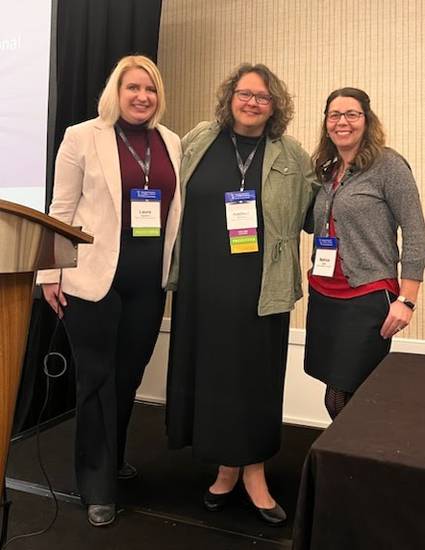
Presentation
Rapid Cycle Deliberate Practice Simulation to Improve Clinical Judgment in New Graduate Nurses.
American Association of Colleges of Nursing
(2023)
Abstract
Background/Introduction
The transition to professional practice involves socialization into a new culture; it allows new nurses to develop clinical judgment. New graduate nurses (NGN) describe their transition period as difficult, stressful, tumultuous, and anxiety-provoking. Although healthcare organizations aim to emphasize a seamless transition into practice, safe quality of care remains a problem. NGNs enter a complex and overwhelmed healthcare system which increases the potential for clinical judgment errors, patient harm, stress, burnout, and attrition.
Purpose
A literature review showed simulation is effective at bridging the knowledge gap between education and practice. High-fidelity simulation develops prioritization, communication, and decision-making skills. Our aim is the development of clinical judgment and communication skills that support NGNs' unique needs during their first year of practice.
Methods or Processes/Procedures
An innovative model, Rapid Cycle Deliberate Practice (RCDP), was used in a multi-patient scenario for NGNs at an urban Magnet hospital in the upper Midwest; learners and facilitators play/pause within the scenario, engaging in micro-debriefs as decisions arise. A pre/post survey measured the learners’ self-efficacy in clinical judgment.
Results
Data collection is complete, and analysis is underway. Initial results show an increase in learner self-assessment of confidence and clinical judgment.
Limitations
Participants in the pilot included 26 NGNs from four hospital units. Four volunteer facilitators from across the system participated in the simulation pre-brief and debrief. Although all nurses were in the first year of acute care practice, they were at varying points in their orientation process. This project addressed the needs of NGNs, however, RCDP requires a skillful facilitator and volunteer facilitators continue to develop these skills.
Conclusions/Implications for Practice
RCDP simulation decreases the cognitive load of learners and allows them to observe, interact, and receive immediate feedback. RCDP can be an effective educational intervention for NGNs to ease the transition to practice. When nurse competency is improved patients, nurses, and healthcare organizations benefit.
Keywords
- Simulation,
- Nursing Education,
- Rapid Cycle Deliberate Practice
Disciplines
Publication Date
Winter January 20, 2023
Location
Coronado, California
Citation Information
Rachael McGraw, Laura Ingalsbe, Cortney Haus, Emily Herman, et al.. "Rapid Cycle Deliberate Practice Simulation to Improve Clinical Judgment in New Graduate Nurses." American Association of Colleges of Nursing (2023) Available at: http://works.bepress.com/katrice-ziefle/9/
